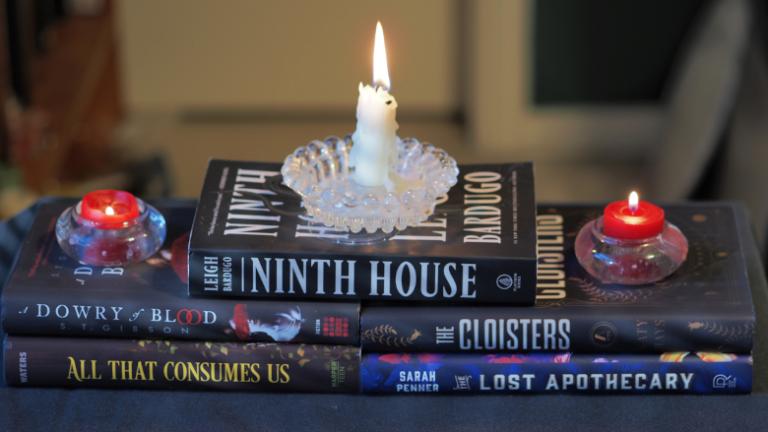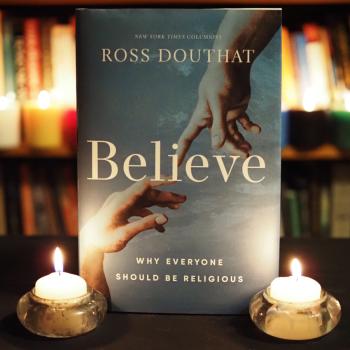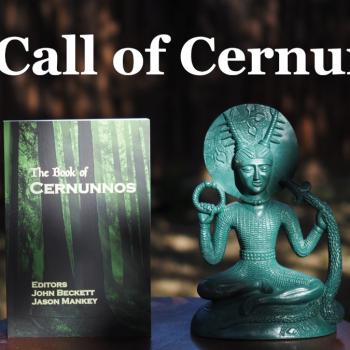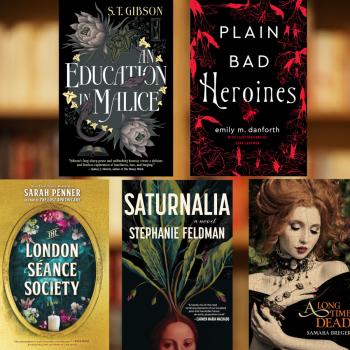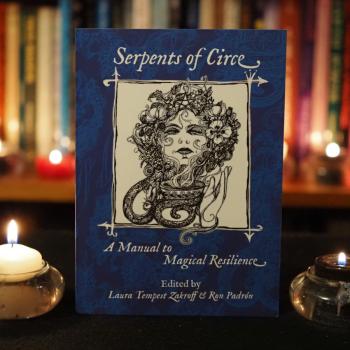Stories are magical.
A good story can transport you to places and times in the far past, in the distant future, or in an alternate universe. It can help you see things in the ordinary world that were previously invisible to you. It can inform you, inspire you, and encourage you to try new things and branch out in new directions.
If you want to change hearts and minds, you don’t need facts. You need stories.
I read a lot growing up. There was no internet and only three TV channels – my entertainment options were rather limited. My fiction reading peaked in my late 20s and early 30s, mainly because I was reading every vampire novel I could get my hands on.
And then I got busy. Three cross country moves in six years, driven by three new jobs. Discovering witchcraft and Druidry, experiencing an ephipany, and taking a leadership role in a local Pagan group. Deciding to start a blog, and, well, you know how that turned out. I still read the occasional urban fantasy, and in 2021 I made an effort to read something new. But even that was a pale comparison to what I used to read.
This year I set a goal to read one novel a month. Again, that’s a fraction of what I used to read, but it would be a step in the right direction. I’m happy to say I’ve met that goal. The stories I’ve read have been entertaining, but they’ve also been inspiring. I can’t do the kind of magic fictional witches can do, but reading fictional magic encourages me to go deeper into the real magic I can do.
I’ve not been shy about asking for reading recommendations. So in the spirit of reciprocity, here are my recommendations to you.
Here are the top five novels I read in 2023.
5. All That Consumes Us
All That Consumes Us by Erica Waters. 2023, 416 pages.
Corbin College is a private liberal arts college in the South. Most of its students are from wealthy families, but Tara is not. So she’s thrilled when she’s given the opportunity to join a secretive elite academic society that will pay all her expenses. But that comes with expectations, and with a price that isn’t disclosed up front.
This is a ghost story, a cautionary tale for people (of all ages) whose lives are focused on achievement at all costs, and a story about the meaning of friendship.
All That Consumes Us is classified as Young Adult. The main character is a 17 year old college freshman, so I suppose it is. But its themes are quite mature, and I never felt like I was reading something intended for kids. Also, it does a great job of being inclusive and representative (around race and ethnicity, gender and sexuality, disability, and class) without being preachy. Some other authors I read this year tried to do this – none did it so well.
4. The Lost Apothecary
The Lost Apothecary by Sara Penner. 2021, 320 pages.
The Lost Apothecary is three stories in one. In 1791, Nella runs a secret apothecary shop, helping the women of London with their problems – including their problems with troublesome men. Eliza is a domestic servant who pays a visit to Nella on behalf of her mistress and then becomes entangled with her. And in the present day, Caroline visits London for what was supposed to be her 10th wedding anniversary, until things turned sour.
I generally don’t like non-linear storytelling, but this works. We learn how Nella and Eliza’s stories happen from their perspective, and then we see how Caroline discovers bits and pieces of that story. In the process, she becomes the historian she always wanted to be before she took a job as a bookkeeper because it was the safe and sensible thing to do. But will she embrace her calling?
Is magic real in this world? The main characters are skeptical, but as in our world, sometimes it’s easier to accept that magic works than to rationalize it away.
3. A Dowry of Blood
A Dowry of Blood by S.T. Gibson. 2022, 320 pages.
For all the many retellings and reimaginings of the Dracula story – in print and on screen – almost none of them have taken the opportunity to fill in the stories of the three Brides of Dracula (Hammer’s 1960 movie of that title was a completely different story). Stoker does not name them, and Jonathan Harker refers to them only as “the weird sisters.” Dracula is long out of copyright and these characters are just waiting for someone to tell their stories.
A Dowry of Blood is a series of letters written to Dracula (though he’s never called by name) by Constanta, his first bride. It’s a vampire story, but mainly it’s a story about domestic violence. Not physical violence, but the violence of emotional manipulation and financial control, and the difficulty of leaving such a situation. And also, the necessity of leaving. I won’t give any real spoilers, but I will say I was happy with the ending.
S.T. Gibson has a retelling of Carmilla coming out in February titled An Education In Malice. I will definitely be reading it.
2. The Cloisters
The Cloisters by Katy Hays. 2022, 336 pages.
This is another dark academia novel, but instead of being set in a college, it’s set in the musuem world of New York City. Ann is a recent graduate in Art History from a small college in eastern Washington who moves to New York for a summer internship. At The Cloisters – a real life museum that specializes in medieval art – she helps the curator and his assistant with their research into a very old Tarot deck, and with their explorations into reading the Tarot.
The Tarot explorations give the story a very Ninth Gate feel to it, minus the Emmanuelle Seigner as the Devil angle.
This isn’t the best novel on this list (that’s why it’s #2) but it is the deepest. It explores the question of free will vs. fate and it shows how some people’s opinions about fate are more about believing what they want – and need – to believe instead of where facts and reason and virtues lead them.
With about a quarter of the book left, I told someone that there were four ways it could end and I had no idea which way it would go. I wouldn’t call the ending happy, but I would call it satisfying.
I haven’t been to New York City since a business trip in 1988. I think I’m going to have to go again, to see The Cloisters.
1. Ninth House
Ninth House by Leigh Bardugo. 2019, 480 pages.
Most of us have heard of Skull and Bones, the secret society at Yale University whose membership includes George W. Bush. But there are others – a quick Google search says there may be as many as 47. Apparently, some are more secret than others. Author Leigh Bardugo is a member of Wolf’s Head, founded in 1883.
In Ninth House there are eight secret societies. Their power comes not just from old money and political conections, but also from magic. Each house has a magical speciality, and they use magic pretty much how you’d expect rich entitled college kids to use it.
Lethe is the ninth house, formed to oversee the magical workings of the other eight. It requires members to have certain skills and talents with magic and the supernatural.
Alex Stern is the last person you’d expect to find at Yale. She’s smart enough, but her high school years were spent with drugs and dealers instead of application-boosting extra curricular activities. But she can see ghosts, so she’s recruited to Yale to serve in Lethe. She struggles to fit in at Yale and to escape her past on the West Coast, while trying to do her job and not get killed – or kicked out of school – in the process.
Ninth House is as much urban fantasy as it is dark academia, and I love the mixture. The timeline bounces around from past to present (you learn the backstory as the main story unfolds) but chapters are labeled so you always know where you are.
My only complaint with Ninth House is that it doesn’t have an ending – it just stops. Fortunately, the sequel (really more of a continuation) came out earlier this year. Hell Bent runs 496 pages and it’s just as good as the original.
This one didn’t make the cut
A Discovery of Witches by Deborah Harkness. 2011, 592 pages.
This is the story of Diana, a young woman who is the latest in a long line of witches, but who prefers to build a life as a scholar. But she can’t quite leave magic alone, and she finds herself entwined in a centuries-long battle for supremacy among the world’s magical species.
I should love this book. It combines my current favorite genre – dark academia – with witches and vampires. A lot of people do love it. When I asked for suggestions in 2021, this book got more recommendations than any other. It also got the most negative comments. One reviewer called Diana TSTL – too stupid to live. That’s a little harsh, but she does take risks that are both serious and obvious. Main characters who never screw up are boring, but those that have the reader screaming “what could you possibly be thinking???!!!” are frustrating.
A Discovery of Witches isn’t a bad book and I don’t regret reading it. But I haven’t read the sequels, and I doubt I will.


